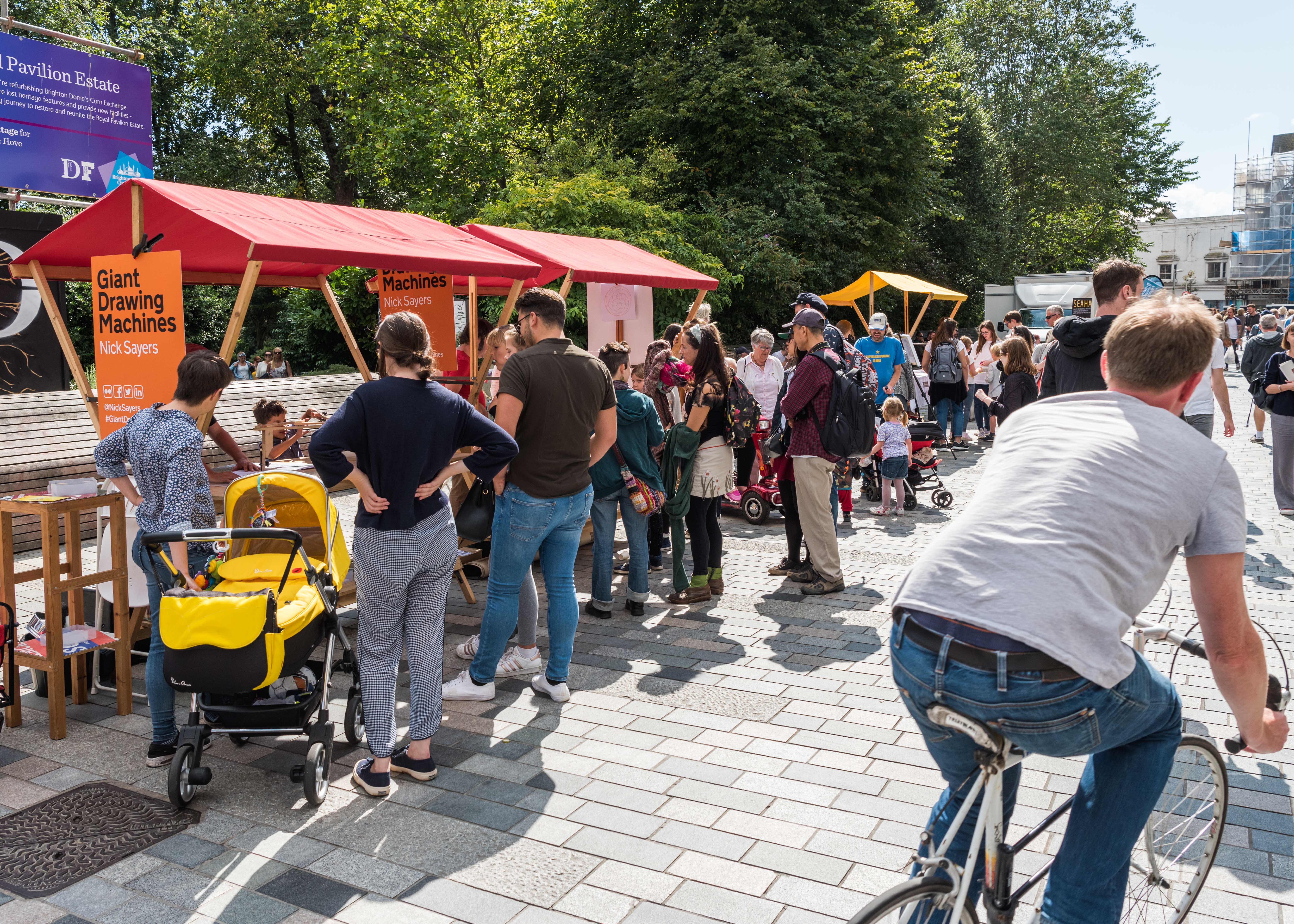
By Anna Woolman, Engagement Officer, British Science Association
In recent years, there has been increasing focus on understanding the backgrounds of audiences engaging with science communication activities, like science festivals. Research conducted by the UK Science Festivals Network (UKSFN) has shown that many science festival audiences come from relatively affluent backgrounds and they typically engage with a wide variety of “high-culture” pursuits, such as visiting the theatre, museums and galleries. While science festivals appealing to such audiences is not inherently bad and should be celebrated to some degree, we cannot overlook that, in general, science communication endeavours are predominantly serving those who arguably need the outreach less.
It’s our responsibility as public engagement practitioners to challenge the status-quo and endeavour to give everyone, regardless of background, the opportunity to access and enjoy the range of amazing and inspiring projects, activities and events that we produce. It’s become apparent that allowing people the ‘permission’ to take part requires more than having an ‘open door’ or ‘breaking down barriers approach, where it’s stated that no-one is discriminated against. The UKSFN, working with partners like UK Research and Innovation and the Wellcome Trust, are trialling new approaches to programming and co-creation, but we know more needs to be done.
Science festivals are uniquely placed in their local areas. They provide opportunities for people to informally engage with and explore the spectrum of science and the arts. However, evidence from the most recent British Science Association “Where is Science Communication now?” report suggests those facilitating science communication activities are far from representative of the UK population, and thus potential audiences.
If a biased trend translates into the science festival sector, this is problematic. Not only because of the issue of audiences not feeling as science is ‘for them’ if they don’t see people like them working in it, but also because having a diverse workforce helps us better understand and meet the needs of diverse audience groups, thus providing the ability to create programmes that improve representation amongst audiences.
To understand the diversity of the science festival workforce and identify potential areas for improvement, the UKSFN piloted a survey on the diversity of their Network in early 2018. The Network is made up of science festival volunteers and employees involved in enabling and supporting the delivery of UK science festivals.
There were some stand out results from the survey. It found that there were notable differences between employees and volunteers, especially in:
- Gender – volunteers were more similar to UK population, but if employees are taken into account then the overall figure is highly skewed towards women (72%)
- Age – volunteers are either 16-20 or 61-65, whereas employees are between 21-40 (note: this could not be directly compared to UK population)
- Ethnicity – volunteers are more representative of UK population than employees
There were also similarities between employees and volunteers:
- Education – both were more highly educated than the UK population
- Free school meals (used as a proxy for socio-economic background) – most were not eligible for free school meals
- Disability – most did not have a long standing mental or physical disability – 5% said they did, compared to 18% of UK population
- Sexual orientation - more people identified as bisexual and less as heterosexual than UK population
Evidently, the pilot survey revealed divides between the backgrounds of the sector’s workforce and the UK population. Although it should be noted that the overall sample size was small (~124), so results should be taken with caution, the overall picture highlights need for further work in this area and for a further uptake of survey completion. Following a positive general consensus from Network members, the piloted survey will be rolled out as a membership requirement in 2019.
Are you interested in issues surrounding diversity in the science festival and wider engagement sector? We will be discussing it and more at the upcoming UKSFN conference in Swansea on the 21 November. Tickets are on sale now and you can get them here.
Do you have any questions or comments about this blog? If so, please get in touch with us at info@sciencefestivals.uk

